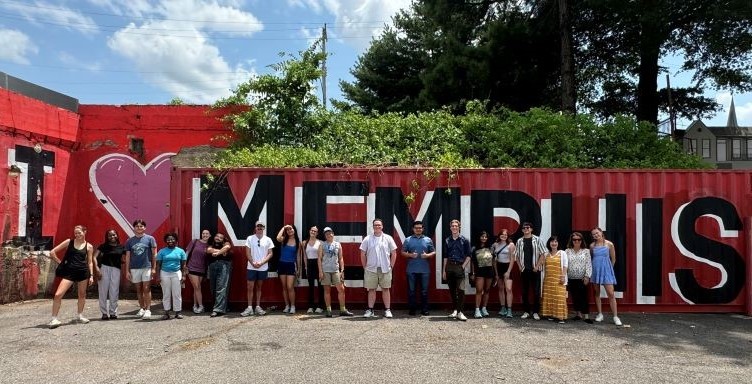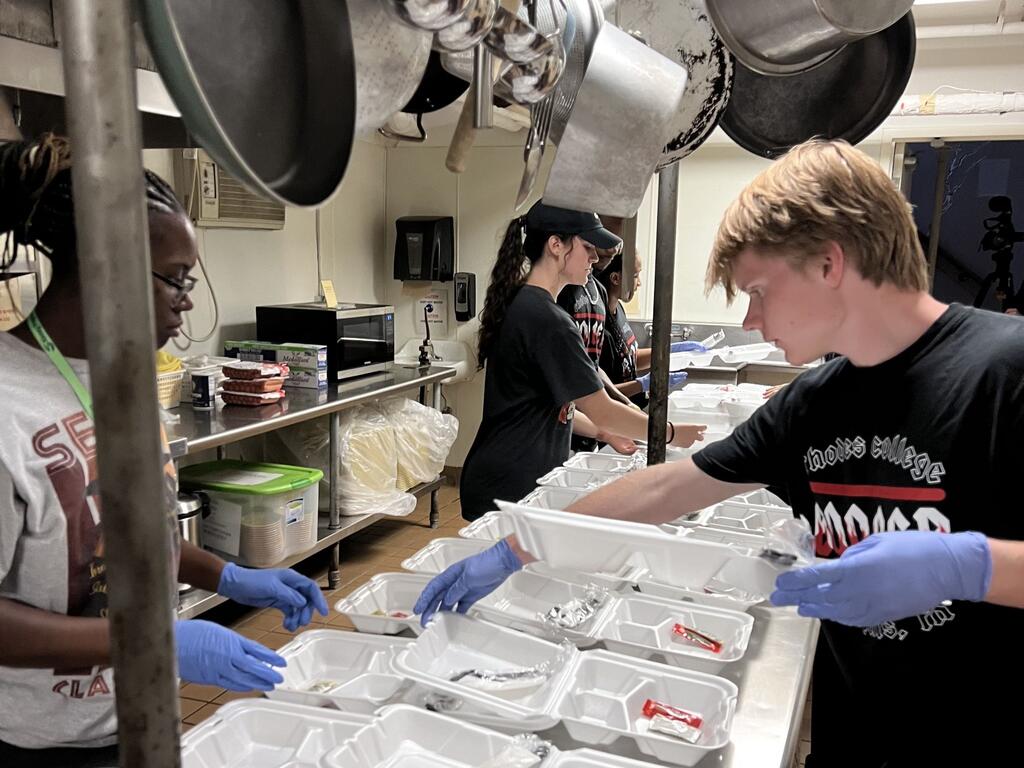Rhodes College is among a select group of U.S. colleges and universities that hold the Carnegie Community Engagement Classification, which is awarded by the American Council on Education and the Carnegie Foundation for the Advancement of Teaching.
In 2006, Rhodes was one of the first institutions to earn the designation, which elevates an institution’s exceptional commitment to mutually beneficial partnerships with communities. The college again earned the classification in 2015.
Becoming a classified institution requires the investment of substantial effort by participating institutions to provide evidence of achieving meaningful outcomes in the lives of their students and communities. Rhodes is developing an application that will be submitted by next year’s deadline for the Community Engagement 2026 application cycle.
“Like any other accreditation process, this is an institutional effort. Individuals and offices across the campus are contributing to our application,” said Dr. Natalie Person, dean of community engagement.
Service is one of Rhodes’ distinguishing characteristics and is reflected in the Rhodes Vision with the college’s aspiration “to graduate students with a lifelong passion for learning, a compassion for others, and the ability to translate academic study and personal concern into effective leadership and action in their communities and the world.”

Rhodes students work with schools, businesses, nonprofits, neighborhood associations and community residents. In 2023, the student organization Roots at Rhodes was presented an award for rendering exceptional service to the neighborhood group Vollintine Evergreen Community Association.
The college’s Kinney Program has been around since the 1950s, allowing students to volunteer at local organizations and support their passions of economic justice, education, the environment, healthcare, and homelessness, just to name a few.
Rhodes student volunteers have been running Souper Contact—the Tuesday soup kitchen at St. John’s United Methodist Church—since 1988. While preparing and serving meals for the homeless and hungry population of Memphis, students, converse with the soup kitchen visitors, learning about real issues affecting the community.
As one of the few selective liberal arts colleges located in a major city, Rhodes recruits students who will respond positively to all that Memphis offers with scholarship programs such as the Bonner Scholars and Clarence Day Scholars.
Fellowships also allow students to contextualize academic study and immerse themselves in the community. St. Jude Summer Plus Fellows, Mike Curb Fellows, Regional Studies Fellows, and Summer Service Fellows are just some of these programs.
Outreach extends beyond Memphis and into communities across the country. The Rhodes College Liberal Arts in Prison Program began in 2016 with a weekly Great Books Reading at a state prison in Henning, TN. The program has involved 36 Rhodes faculty members from 10 departments and more than 50 Rhodes students and has been transformative for the incarcerated women, equipping them with career and life skills and reducing their likelihood of reoffending. This year, Rhodes became the first institution in the South to join the national Consortium for the Liberal Arts in Prison, deepening its commitment to creating access to higher education for incarcerated people.
“Community engagement is integral to the Rhodes experience. Our students arrive eager to engage with Memphis and to apply what they are learning in their courses to their work in our community. We have over 260 community partners who mentor and supervise our students in ways that are mutually beneficial for both the students and our community partners,” said Person.
Learn more about community service and engagement at Rhodes College.
